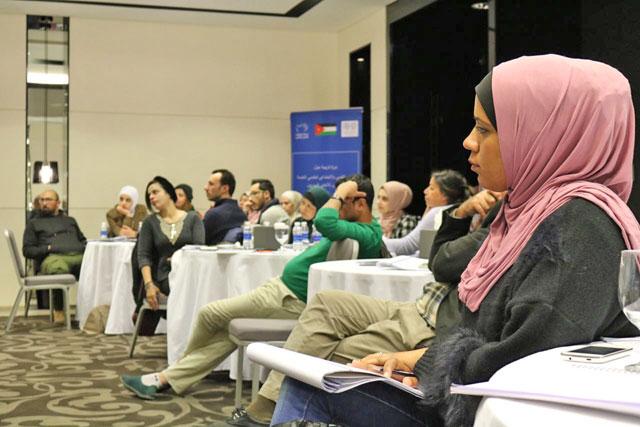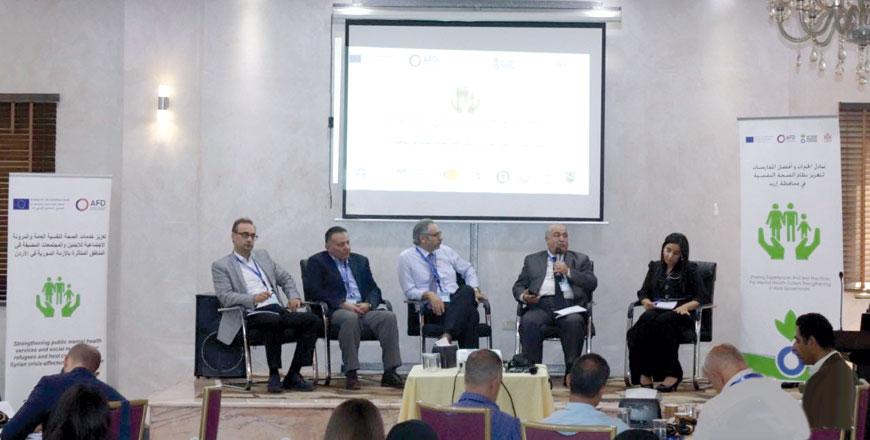You are here
Programme to train aid staff in psychosocial support
By Ana V. Ibáñez Prieto - Mar 21,2018 - Last updated at Mar 21,2018
AMMAN — The University of Jordan (UJ) on Monday announced plans to implement a training programme addressing local and international staff working with Syrian refugees in Jordan, aimed at enabling employees to provide psychosocial support for refugees and vulnerable Jordanians.
Organised by UJ’s Faculty of Nursing in cooperation with the university’s Centre for Counseling and Training, the initiative is supported by the German Agency for International Cooperation (GIZ).
The objectives of the programme were outlined by Project Manager for Social and Psychosocial Support and Trauma Reduction at GIZ Christine Mueller during a workshop held at the university on Monday.
She noted that the programme will “enable trainees to help refugees cope with the changes in their social life as compared to their communities of origin”.
Zaid Baqain, vice president for Scientific Schools at the UJ, stressed the importance of the programme that “supports the humanitarian efforts aimed at addressing the difficult situation of the Syrian refugees in Jordan”, pointing out “the burdens borne by the Kingdom in hosting large numbers of refugees”.
Mental health nursing professor at JU, Ayman Mansour, told The Jordan Times that the trainings will be conducted yearly for a total of four years, starting with a workshop with stakeholders followed by a three-month course.
“The selected trainees will attend a total of 11 sessions at the university to later apply these principles as a part of their routine on the field,” Mansour explained, highlighting that all participants come from NGOs and governmental agencies across the Kingdom already involved in providing services to Syrian refugees.
The professor noted that the university previously conducted studies on the psychological well-being of refugees in collaboration with national agencies, which showed that “their social and psychological needs are almost completely neglected in Jordan”.
“So far, only psychiatric services are provided in most cases, but mental health is about much more than that,” he added, expressing hopes for the training to “enable providers to deliver other crucial ways of care”.
Related Articles
AMMAN — The German Agency for International Cooperation (GIZ) has recently announced it will hold a career day at Luminus Technical Universi
AMMAN — A training programme aimed at improving the skills of social and health professionals working with Syrians and Jordanians cond
AMMAN — Officials and members representing public, private and international organisations have come together for a workshop in Irbid to dis

















